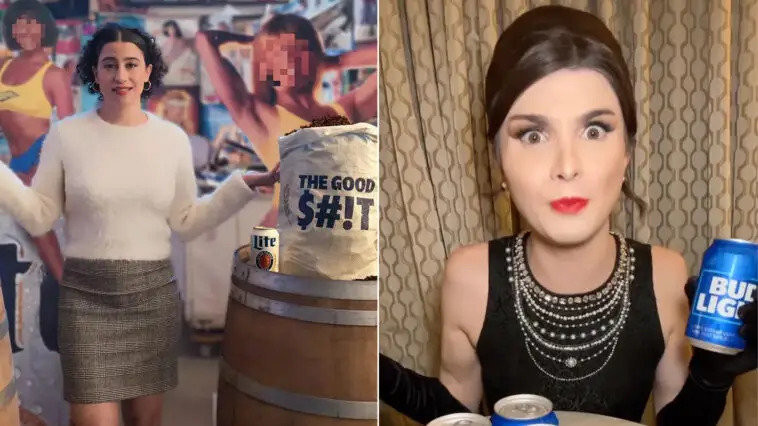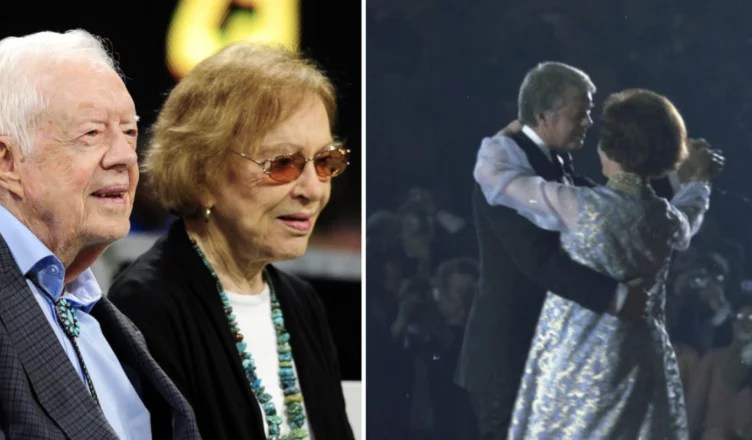Breaking: Miller Lite Faces Boycott of Lifetime Following Bud Light Due To ‘Wokeness’

The brewing industry, often celebrated for its traditions and simplicity, has recently found itself at the epicenter of a storm brewing over marketing strategies.
Miller Lite, a stalwart in the American beer scene, has faced a brewing controversy following its ‘Bad $#!T to Good $#!T’ ad campaign.
This initiative, aimed at addressing past criticisms of objectification of women in beer advertising, has sparked a significant backlash, leading some consumers to call for a lifetime boycott. In the shadow of this, Bud Light, another major player, has also faced its share of marketing missteps, leading to a decline in popularity. This article explores the delicate balance these beer giants must strike in navigating the evolving landscape of societal expectations.
Launched in March, the ‘Bad $#!T to Good $#!T’ campaign by Miller Lite took a bold step in repurposing older advertisements deemed “sexist” into fertilizer for hops, to be exclusively used by female brewers. The intention was clear: address the industry’s past shortcomings and contribute to a more inclusive brewing environment. However, what seemed like a progressive move on the surface has become a lightning rod for controversy.
Traditionalists argue that Miller Lite’s departure from its straightforward, no-nonsense image jeopardizes the brand’s authenticity. The campaign, viewed by some as virtue signaling, has led to accusations that the brand is abandoning its traditional base for a more ‘woke’ agenda. The essence of Miller Lite, long associated with simplicity and authenticity, is now under scrutiny.
The backlash against Miller Lite’s campaign underscores the challenges companies face when attempting to align with progressive values. Many consumers argue that the focus should remain on the quality of the beer and the skills of the brewers, irrespective of their gender. This sentiment suggests that merit and experience, rather than gender, should be the driving factors in the brewing industry.
The debate around ‘wokeness’ in marketing is not new, and the beer industry is just the latest battleground. Critics of such campaigns argue that they risk alienating a significant portion of the consumer base, as seen in the case of Bud Light, whose recent missteps have resulted in a substantial drop in sales.
Bud Light, a quintessential American beer, has also found itself in hot water due to perceived mishandling of controversy. Anheuser-Busch, Bud Light’s parent company, has witnessed a decline in sales following marketing missteps. Bud Light, synonymous with American gatherings and barbecues, has struggled to find the right balance in adapting to societal changes without alienating its consumer base.
The cautionary tale from Bud Light highlights the potential financial implications of mismanaging a brand’s identity in the face of societal shifts. The decline in sales serves as a stark reminder that consumer loyalty can be fragile, and the repercussions of getting the balance wrong can be severe.
The central challenge for these beer giants is navigating the promotion of social or political agendas without alienating their core consumer base. The beer industry, deeply rooted in tradition, has long been a place for celebration, camaraderie, and good times. The question that looms large is whether brands can authentically align their actions with their brand identity and consumer expectations while responding to changing societal norms.
Authenticity, a key element in brand loyalty, becomes a critical factor in this balancing act. Consumers are quick to discern whether a brand’s commitment to social issues is genuine or merely a marketing ploy. The risk of being perceived as insincere or engaging in virtue signaling can be detrimental to a brand’s reputation and, ultimately, its bottom line.
As Miller Lite and Bud Light grapple with their identities amidst changing societal norms, consumers hold the power to shape their fate, one beer at a time. The outcome of Miller Lite’s venture into ‘wokeness’ remains uncertain. Will the traditional consumer base stay loyal, or will they seek brands that better align with their values?
The consumer verdict will likely hinge on the effectiveness of the brand’s messaging, its ability to connect authentically with its audience, and whether consumers perceive the changes as genuine or as mere attempts to follow trends. As these beer giants strive to navigate the delicate terrain of tradition and progress, the choices made in the coming months will determine their standing in the ever-evolving landscape of the brewing industry.
The clash between tradition and societal change in the beer industry, epitomized by the recent campaigns of Miller Lite and the missteps of Bud Light, underscores the challenges brands face in navigating a complex and dynamic landscape. The ‘wokeness’ debate, coupled with the potential financial implications of marketing missteps, serves as a cautionary tale for corporations.
As consumers cast their votes with every beer they choose, the brewing industry is on notice. The delicate balancing act between preserving tradition and adapting to societal expectations is a tightrope walk that demands authenticity and a nuanced understanding of consumer sentiments.
Whether these beer giants will weather the storm or find themselves in the dregs of controversy remains to be seen. One thing is clear: in the ever-shifting landscape of advertising and marketing, the consumer holds the key to the fate of these iconic beer brands.



Leave a Comment